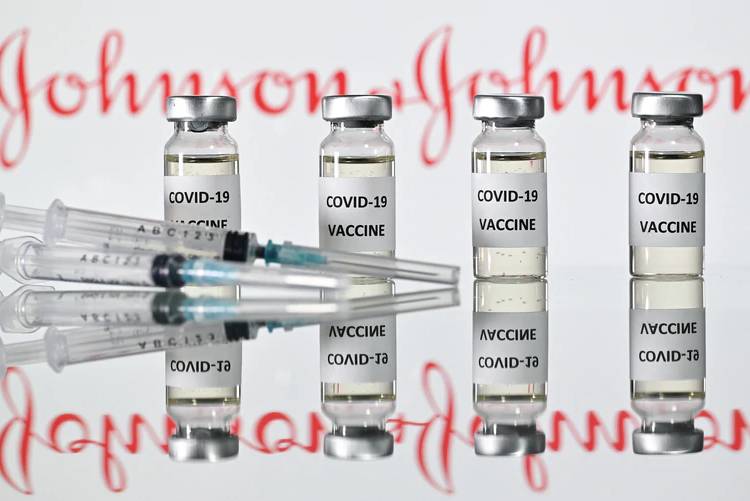The U.S. Food and Drug Administration formally authorized the use of the Johnson & Johnson’s one-dose vaccine Saturday, clearing the way for shots to go into arms as early as Monday.
The Johnson & Johnson vaccine is 85% effective against serious illness, hospitalization and death from COVID-19, the disease caused by the coronavirus, according to data from a study that spanned three continents. The shot kept its protection even in the countries where the South African variant is spreading.
The one-and-done inoculation has been eagerly awaited by health officials who want to speed vaccinations in a race against the coronavirus and its worrisome mutations. As of Saturday evening, more than 28.5 million Americans have had COVID-19 and nearly 512,000 have died from the disease, according to the Johns Hopkins Coronavirus Resource Center.
"The more vaccines that have high efficacy that we can get into play, the better," Dr. Anthony Fauci, the top U.S. infectious-disease expert, said ahead of the FDA's ruling.
An FDA advisory panel unanimously endorsed the vaccine Friday, paving the way for the agency’s authorization.
The one-dose vaccine is the third coronavirus inoculation approved by the FDA. It follows the two-dose vaccines manufactured by Pfizer-BioNTech and Moderna.
Johnson & Johnson has said that by the end of March, it expects to deliver 20 million doses to the U.S., and 100 million by summer, The Associated Press reported. Johnson & Johnson is also seeking authorization for emergency use of its vaccine in Europe and from the World Health Organization.
Members of the Congressional Black Caucus went on television Friday to encourage African Americans to receive COVID-19 inoculations.
“We’re looking at historic fear of vaccines and a fear of the health care industry,” said Representative Barbara Lawrence, a Democrat from Michigan.
Black and Latino communities are being inoculated at lower rates in the U.S. than their white counterparts, public health officials say.
Meanwhile, Britain’s Trades Union Congress said in a study that the pandemic had provided a “mirror to the structural racism” in Britain, with the unemployment rate for communities of color double that of their white contemporaries during the pandemic.
Former British Prime Minister Tony Blair’s Institute for Global Change has issued a report, The New Necessary: How We Future-Proof for the Next Pandemic, that calls for international cooperation in the future to identify and test for any new outbreak. The report also called on countries to work together to produce vaccines.
Blair told The Guardian: “Had there been global coordination a year ago, I think we could have shaved at least three months off this virus,” in a reference to the worldwide outbreak of COVID-19.
New Zealand Prime Minister Jacinda Ardern announced Saturday that the country's largest city, Auckland, would enter a seven-day lockdown beginning Sunday after a new local case of the coronavirus of unknown origin emerged.
France will impose weekend lockdowns in Paris and 19 other regions at the beginning of March if coronavirus infections continue to accelerate. French Prime Minister Jean Castex said Thursday that a nationwide lockdown was not planned, but that residents needed to be in a state of heightened alert to help ensure the virus is contained while vaccines are made available.
New containment measures were imposed in several Brazilian cities and states, and the Czech government also announced tighter restriction beginning March 1.
(VOA)

